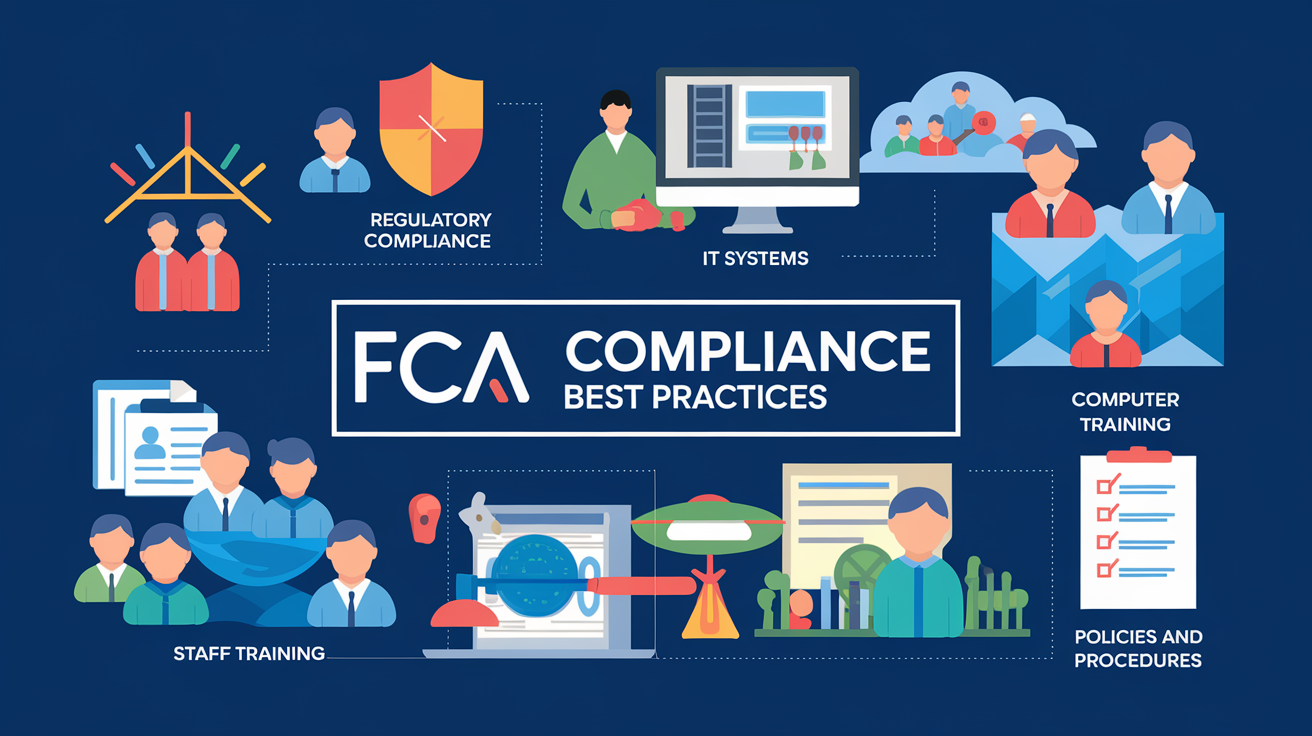
I. Establishing an FCA Compliance Culture
In today’s regulatory landscape, fostering a strong FCA compliance culture is of paramount importance for financial institutions in the UK. This article provides a comprehensive guide to establishing such a culture, ensuring that organisations remain compliant with FCA regulations while promoting ethical behaviours among employees.
II. Understanding FCA Compliance
What is FCA Compliance?
FCA compliance refers to adhering to the rules and regulations set forth by the Financial Conduct Authority, which regulates financial firms to protect consumers and uphold market integrity.
Importance of FCA for Financial Institutions
It is essential for financial institutions to embrace FCA compliance to mitigate risks, build trust with clients, and avoid penalties. Compliance reflects a firm’s commitment to ethical practices.
Overview of FCA Regulations and Guidelines
FCA regulations encompass a wide range of practices, including anti-money laundering, consumer protection, and fair treatment of customers. Understanding these regulations is the first step toward compliance.
III. Assessing Current Compliance Culture
Conducting a Compliance Culture Assessment
Evaluate the existing culture by gathering feedback from employees at all levels. Use surveys, interviews, and focus groups to identify perceptions around compliance.
Identifying Gaps and Areas for Improvement
Analyze the assessment results to pinpoint weaknesses in compliance practices. Recognise areas that may lead to non-compliance, such as lack of training or unclear communication.
IV. Leadership Commitment to FCA Compliance
Role of Senior Management in Promoting Compliance
Leadership must demonstrate a commitment to compliance by embedding it into the organisation’s vision and values. This can be achieved through regular communication and setting a clear tone from the top.
Strategies for Leaders to Foster a Culture of Compliance
Encourage leaders to participate in compliance training and foster an environment where compliance discussions are welcomed. Leaders should regularly address compliance in team meetings and updates.
V. Training and Development Programs
Implementing Effective Training for Employees
Develop comprehensive training programs that educate employees on FCA regulations relevant to their roles. Use a mix of in-person sessions, e-learning, and workshops to enhance engagement.
Continuous Professional Development (CPD) in Compliance
Encourage ongoing training and professional development to keep staff up-to-date with the latest FCA regulations. This can include workshops, conferences, and certification courses.
VI. Communication Strategies
Importance of Open Communication regarding Compliance
Foster an environment where compliance is an open topic. Encourage staff to voice concerns or seek guidance without fear of repercussions.
Establishing Channels for Reporting and Feedback
Create clear and accessible channels for reporting compliance issues or unethical behaviour, such as anonymous hotlines or dedicated compliance officers.
VII. Monitoring and Evaluation
Regular Compliance Audits and Assessments
Conduct periodic audits to evaluate adherence to FCA regulations. These audits should assess both processes and outcomes, identifying areas for improvement.
Key Performance Indicators (KPIs) for Compliance
Develop KPIs that measure compliance effectiveness, such as the number of compliance breaches, employee training completion rates, and incident resolution times. Regularly review these metrics.
VIII. Encouraging Ethical Behaviour
Building an Ethical Framework within the Organisation
Create a clear ethical framework that outlines expected behaviours and decision-making processes. Ensure that this framework aligns with FCA standards and organisational values.
Promoting Whistleblowing Policies
Implement and promote whistleblowing policies that protect employees who report unethical behaviour. Ensure employees understand these policies and feel safe to use them.
Conclusion
Establishing an FCA compliance culture is not a one-time effort but an ongoing commitment that requires the involvement of all members of the organisation. By focusing on leadership commitment, effective training, open communication, and ethical behaviour, financial institutions can create a robust compliance environment that not only adheres to regulations but also promotes trust and integrity. Now is the time for organisations to take proactive steps towards this goal.
To Contact Us
Tel; UK 0800 689 0190, International +44 207 097 1434
Email: info@complianceconsultant.org
Or Book A Discovery Call with us by clicking the picture below!
You may also find these posts of interest
FCA Risk Assessment and Management
Reporting Requirements for FCA Compliance
Continuous Improvement for Compliance
Benchmarking Against Industry Standards
